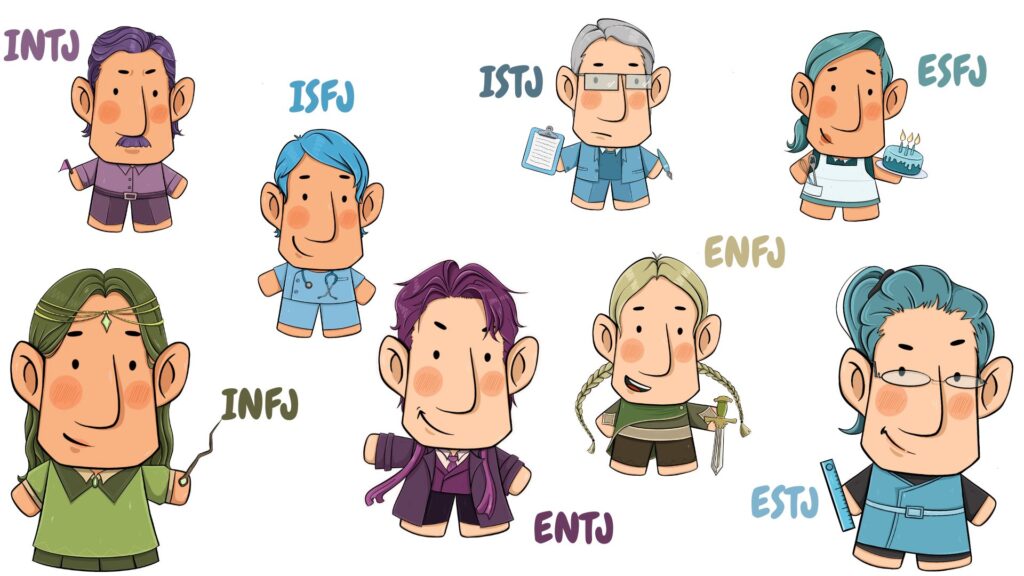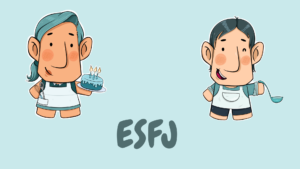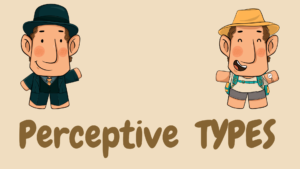
Are you a planner who loves predictability? Embrace your love for detailed plans and color-coded spreadsheets. Even when things don’t go as planned, remember to leave room for life’s unexpected twists. Whether you’re a die-hard planner or go-with-the-flow, there’s a place for all of us in this chaotic world. Who needs a crystal ball when you’ve got your meticulously planned-out future? Just remember to expect the unexpected – even the best-laid plans can go hilariously awry!
Where Did the Judging Word Come From?
Carl Jung, the OG of personality theory, was like the Dumbledore of psychology, casting spells of insight and wisdom into the murky depths of the human mind. He was all about understanding why we humans do the wacky things we do, and he came up with this whole personality typology thing to make sense of it all.
In Jung’s world, “Judging” wasn’t about gavel-wielding folks in robes; it was about people who were so organized and decisive, they made color-coded spreadsheets look like child’s play. These “Judging” types were all about structure and order – they probably even had a filing system for their filing system.
Jung’s typology wasn’t just some dusty old theory; it was like a treasure map to understanding the wild and wacky world of human behavior. And “Judging” was a big, bold X marking the spot where all the organized decision-makers hung out.
So, thanks to Jung, we’ve got this nifty way of categorizing folks based on their planning prowess. Who needs a crystal ball when you’ve got Jung’s typology to decipher the human puzzle? It’s like personality Sudoku, but with way more interesting characters! Keep on judging, folks – in the Jungian sense, of course!

Broadened Perspective on Judging
Carl Jung’s concept of “Judging” enhances our understanding of human decision-making and cognitive styles. By including “Judging” in his typology, Jung highlights the complexity of individual cognitive orientations and their approaches to organizing experiences. This perspective reveals the diverse behavioral tendencies and thought processes that shape how people navigate decisions and structured living. Jung’s framework fosters a deeper appreciation for the spectrum of cognitive inclinations, recognizing the uniqueness of each individual’s approach to planning and decisiveness. Ultimately, by integrating “Judging,” Jung invites exploration into the richness of human cognition, offering an inclusive lens to understand the multifaceted nature of behavior and thought.
Heightened Characteristics of Judger Individuals
· Decisiveness
The Incredibly Swift and Totally Speedy Decision-Makers: Judger individuals have the remarkable ability to swiftly make decisions, almost to the point of being able to decide what to eat for dinner without spending hours in indecision (or so they might claim).
· Organization Maniacs
The Color-Coding Maestros and Label-Making Gurus: Judgers have a natural inclination for structure and organization, delighting in creating color-coded spreadsheets, enviable filing systems, and a harmoniously arranged sock drawer. Their organizational prowess might even extend to alphabetizing their spice racks for that extra dash of flavor logic.
· Goal-Oriented Whirlwinds
Masters of Relentless Goal Pursuit (With Minimal Breaks): The Judgers’ goal-oriented approach is brilliantly underscored by their uncanny ability to juggle multiple objectives simultaneously while maintaining a steadfast and unyielding focus—until they suddenly discover a fascinating new hobby and gallop off in pursuit of an entirely different goal.
· Time Management Wizards
Keepers of the Punctual Galaxy: Judgers were born with an internal clock set to precise time increments, allowing them to seamlessly navigate through schedules and meet deadlines with remarkable punctuality. However, this might be offset by the whimsical habit of meticulously planning a spontaneous evening of surprises (planned in 15-minute intervals, naturally).
· Masterminds of Structured Planning (Architects of Elaborate Schemes and Dreams)
Judgers seamlessly weave intricate plans for every aspect of their lives, seamlessly designing a detailed life blueprint—right until life throws a wonderfully unexpected curveball, leading them to ad-lib a spirited new direction in their meticulously structured narrative.
· Sultans of Orderliness (Keepers of the Impeccably Organized Realm)
The Judgers’ preference for orderliness is reflected in every meticulously maintained space, occasionally adorned with a delightful hint of irony as they valiantly battle against the entropy of daily life to maintain their exquisitely orchestrated kingdom of harmony and balance.

Development and Nurturing of Judging
Developing the “Judging” trait in the Myers-Briggs Type Indicator is like training for a marathon—if marathons were all about organizing your sock drawer! Those who lean towards judging thrive on structure and decisiveness, often engaging in a delightful dance of introspection and experience. Self-awareness is key; it’s like holding a mirror up to your inner neat freak! Understanding your strengths and challenges is crucial, but don’t worry—no one’s judging (pun intended). Experiential learning is the name of the game; think of it as a boot camp for decision-making where you learn to tackle tasks with military precision. So, embrace those time management challenges, create schedules that even a clock would envy, and soon you’ll be the ultimate decision-making machine—efficient, organized, and maybe just a tad overly enthusiastic about color-coded planners!
Pros and Cons of Being a Judger
Pros of Being a Judger
The Master Decision-Maker Extraordinaire
You’re hailed as the ultimate decision-maker, admired for your swift choices. Irony: Yet, when it comes to picking a movie on Netflix, suddenly you’re faced with an indecisiveness crisis.
The Organization Maestro
Your organizational skills are top-notch, creating harmony in chaos. Irony: Your desk may be impeccable, but your thoughts? A delightful whirlwind of creative clutter.
The Scheduler Supreme
Your time management skills are legendary, ensuring punctuality at all times. Irony: You might have every minute planned, but the universe seems to conspire against this, leading to the occasional beautifully chaotic day.
Goal-Getter Extraordinaire
You’re the goal-setting champion, always aiming for the stars. Irony: Sometimes, in your quest for success, you forget to enjoy the journey itself, missing out on the spontaneous joys of life.
The Orderliness Overlord
Your love for order brings peace to the chaos. Irony: While your sock drawer is a marvel of tidiness, let’s not talk about the hidden chaos behind closed doors… your closet!
Cons of Being a Judger
The Decisive Dilemma
Decision-making can lead to analysis paralysis. Irony: You, the decision-master, may find yourself agonizing over the simplest choices, turning a trivial task into a Herculean deliberation.
The Organized Overload
While structure is your middle name, flexibility might need a GPS to find you. Irony: Your rigidity in planning may lead to missing out on the spontaneity and fun surprises life has to offer.
The Clockwatcher Catastrophe
Time management is your forte, but relaxation seems to be a foreign concept. Irony: You might schedule every minute, yet the irony is that some of life’s best moments are found in the unplanned spontaneity.
The Goal Galore Challenge
Achieving goals is your mission, but sometimes you forget the joy in the process. Irony: While chasing dreams, you may overlook the beauty of the present moment, missing out on the unexpected delights life throws your way.
The Cleanliness Conundrum
Your love for orderliness verges on obsession, creating a pristine environment. Irony: Beneath the immaculately organized exterior lies a hidden treasure trove of chaos—your secret stash of “organized mess.”

Judging Assessment Methods
Self-Reflection and Journaling
Encourage individuals to reflect on their decision-making processes, organizational skills, and goal-setting tendencies through self-assessment and journaling. This method allows them to introspect and gain insights into how they approach tasks and make choices in various aspects of their lives.
Personality Assessments
Utilize personality assessments like the Myers-Briggs Type Indicator (MBTI) or the Big Five personality traits to identify and understand an individual’s preference for judging. These assessments provide structured frameworks for evaluating traits related to decisiveness, organization, and planning, offering valuable insights into their judging tendencies.
360-Degree Feedback
Implement a 360-degree feedback mechanism where peers, supervisors, and subordinates provide input on an individual’s decision-making abilities, organizational skills, and goal-oriented mindset. This comprehensive feedback loop offers a holistic view of how the individual’s judging traits are perceived in different aspects of their professional and personal life.
Behavioral Observation
Observe the individual’s behaviors in various situations to assess their approach to decision-making, planning, and organization. By analyzing how they handle tasks, prioritize responsibilities, and structure their time, you can gain valuable insights into their judging characteristics in action.
Goal-Setting and Tracking
Engage individuals in setting specific, measurable, achievable, relevant, and time-bound (SMART) goals to evaluate their ability to plan, execute, and achieve objectives. By tracking their progress and outcomes, you can assess their judging traits in terms of goal orientation, strategic planning, and follow-through.
The Abundance of Judger people
The Judging preference in the Myers-Briggs Type Indicator (MBTI) represents one aspect of personality related to information processing and decision-making. According to the Center for Applications of Psychological Type (CAPT), about 45-50% of the population exhibits this preference, indicating a significant portion of individuals display traits associated with Judging. It’s important to recognize that personality preferences are not fixed; they can evolve over time due to personal experiences and development. Additionally, people often show a mix of Judging and Perceiving traits depending on their circumstances. While estimating the exact number of individuals with a Judging preference worldwide is challenging, it is clear that many demonstrate characteristics linked to this preference in their organizational and planning behaviors. This diversity in personality traits enhances the complexity of human behavior and enriches interpersonal dynamics globally.




